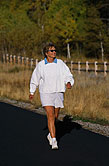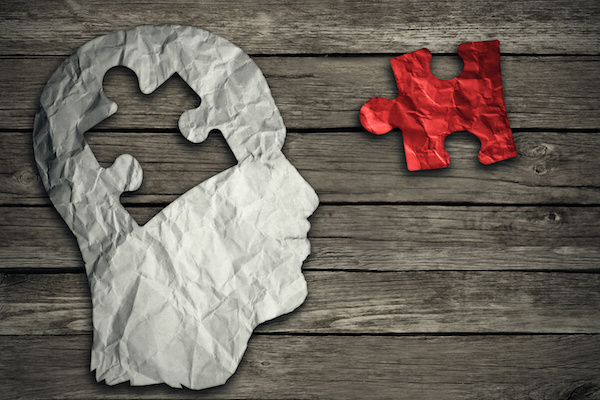
MONDAY, Jan. 31 (HealthDay News) — Older adults who took a brisk walk three times a week did better on memory tests and increased the size of their hippocampus, a portion of the brain involved with memory formation, researchers report.
The findings suggest that loss of brain volume in old age can be delayed, and may even be reversible. Brain shrinkage is associated with memory impairment in the elderly.
“We can change the brain in older adults,” said lead study author Kirk Erickson, an assistant professor of psychology at the University of Pittsburgh. “It’s amazing that a one-year period of moderate exercise isn’t just slowing down the atrophy, it’s actually reversing it.”
For their the study, researchers from the University of Pittsburgh, University of Illinois, Rice University and Ohio State University divided 120 sedentary adults in their mid to late 60s, on average, into two groups: one group walked around a track for 40 minutes of aerobic exercise, three days a week, while the other group (the control group) did stretching.
Both groups performed better on a test of spatial memory. Spatial memory helps us to remember things like driving directions or where we left our keys.
But the groups differed in one important way. MRI brain scans showed that after a year on the exercise program, the aerobic exercise group’s hippocampus was about 2 percent bigger than it was when they started, the equivalent to a reversal in age-related brain shrinkage of about one to two years, the researchers said.
Those in the stretching group had a decrease of hippocampal volume of about 1.4 percent, the investigators found.
Those who showed the greatest improvements in memory also showed the greatest increases in hippocampal volume, according to the study, published online Jan. 31 in the Proceedings of the National Academy of Sciences.
The researchers found that those whose hippocampus grew the most showed higher levels of brain-derived neurotrophic factor, a growth factor in the blood that’s associated with brain health.
Even late in life, the hippocampus continues to grow new neurons, said Dr. Gary Kennedy, director of geriatric psychology at Montefiore Medical Center in New York City.
“It’s very, very exciting and is essentially proving a theory that has been around for a while, which is that exercise can promote neurogenesis, or the transformation of neural stem cells in the brain into mature, functioning neurons,” Kennedy said. “Exercise seems to enhance it or speed it up.”
It’s possible that exercise could help ward off not only ordinary mental decline but also dementia, Erickson said.
But questions remain. If three days a week is good, would six days a week be better? Would running be better than walking?
“We really don’t have a good answer for that,” Erickson said, though his prior research found that older people who walked between six and nine miles a week showed significantly less decrease in brain volume over nine years than couch potatoes, but walking more than that didn’t seem to increase brain volume any more.
The researchers also looked at the effect of aerobic exercise on two other regions of the brain, the caudate nucleus, which deteriorates with age and disease, and the thalamus, a more stable brain region, but no changes were evident.
“This suggests the effect is not just a widespread increase in brain mass, but it’s relatively specific to the hippocampus,” Erickson said.
According to background information in the study, in otherwise healthy adults the hippocampus shrinks by about 1 to 2 percent a year, and the decrease is even more rapid among people with dementia.
More information
The American Academy of Family Physicians has tips for starting an exercise program.

